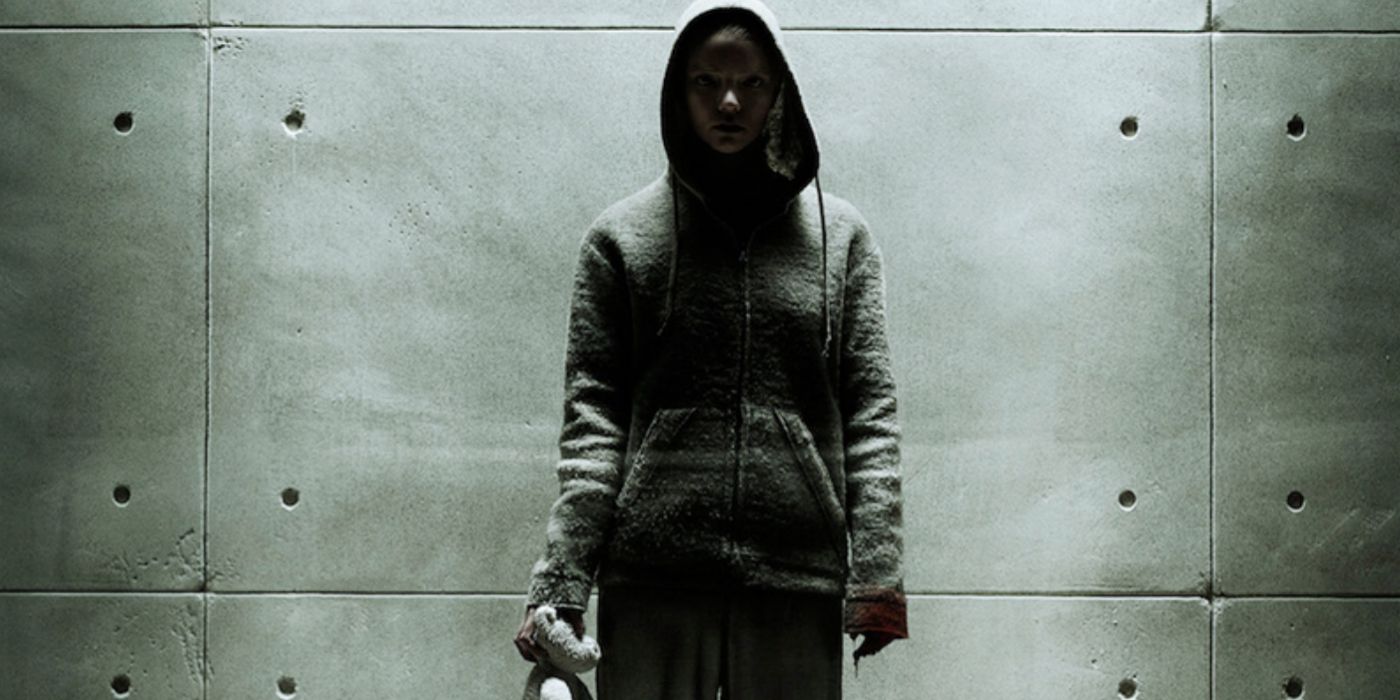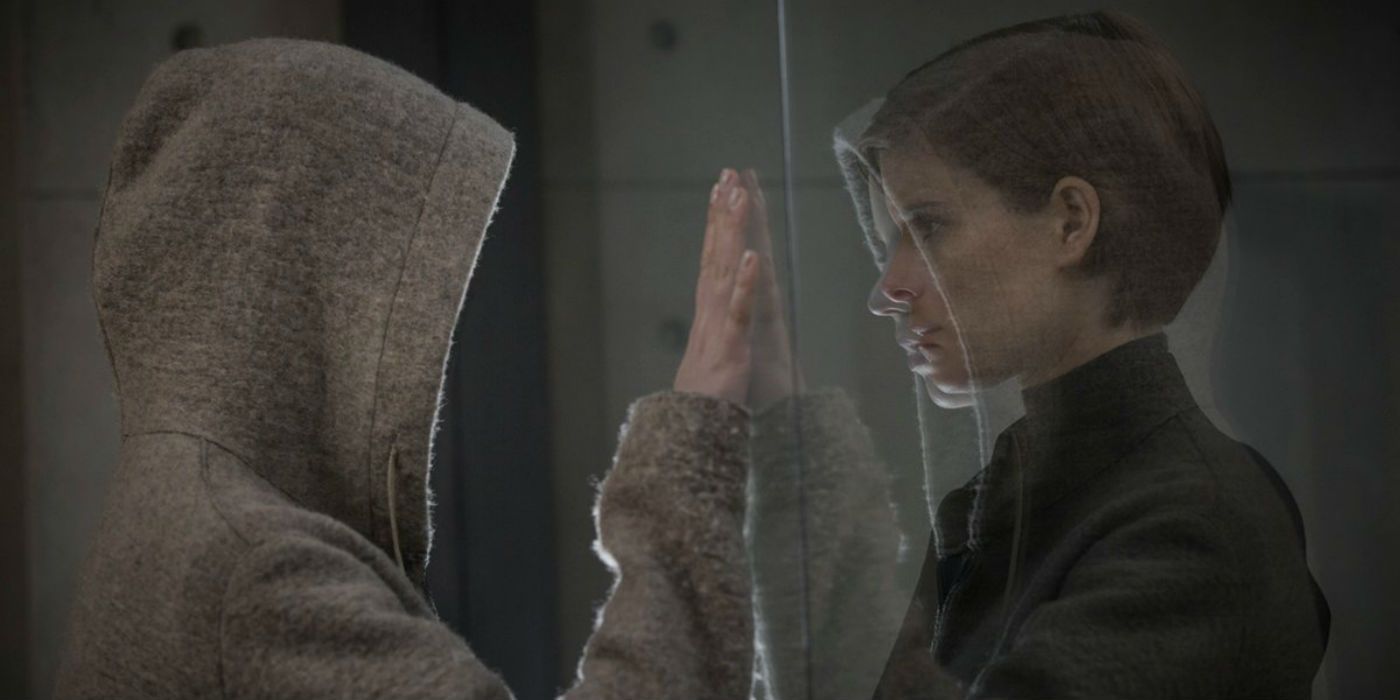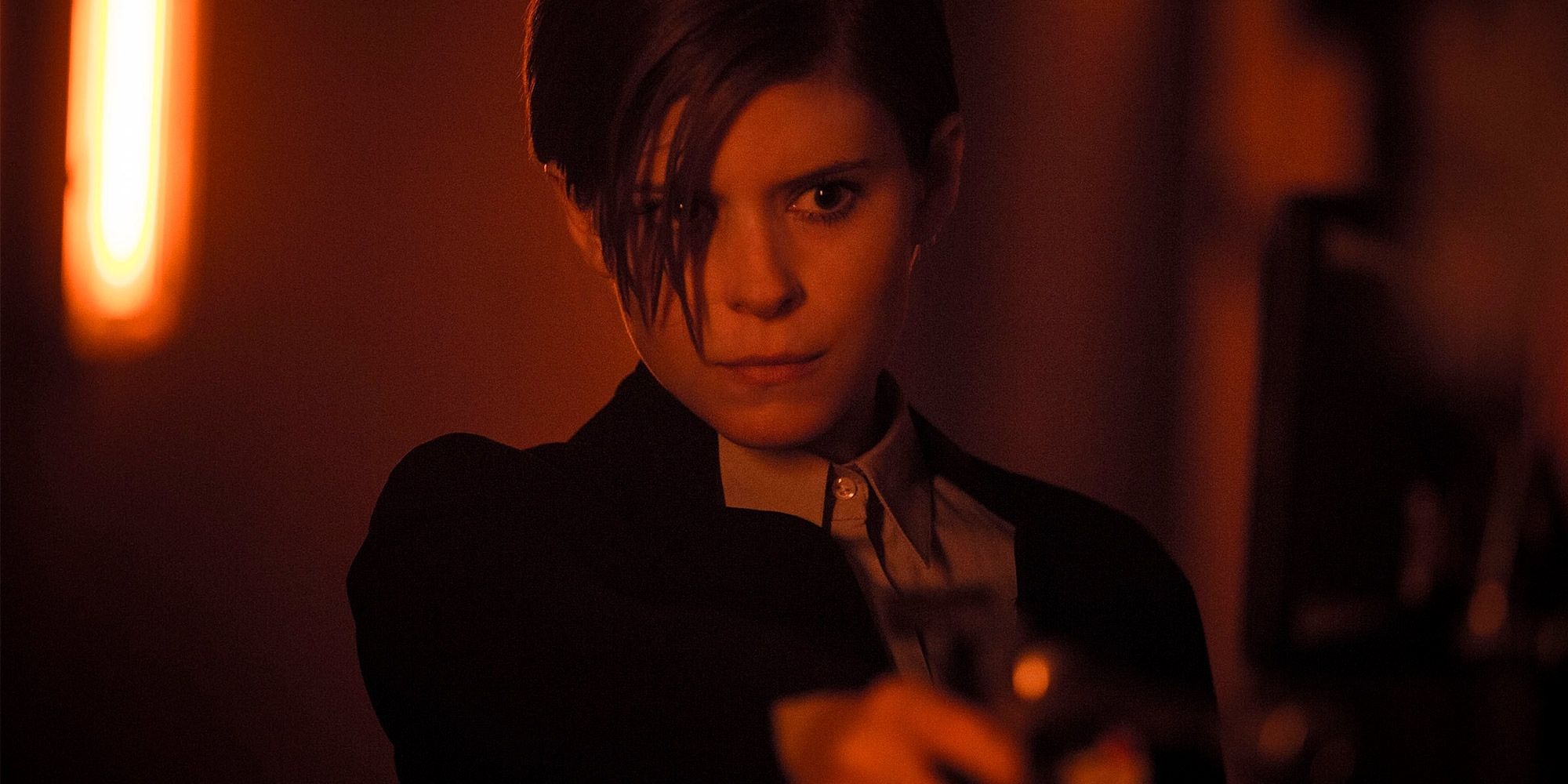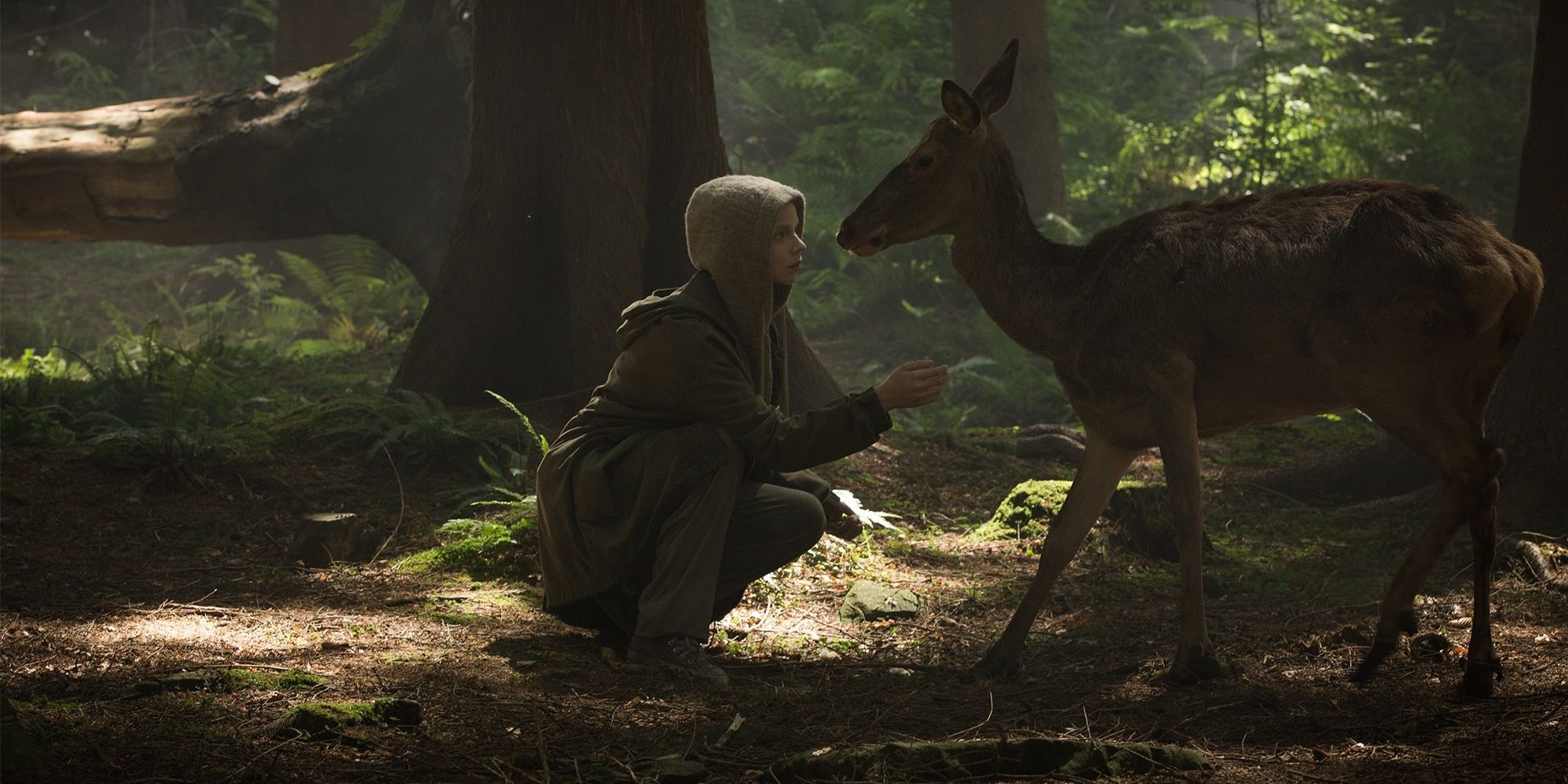It toys with some interesting concepts, but Morgan ultimately favors generic action over developing its core ideas into something more fascinating.
In Morgan, a group of scientists have spent years working on a project to artificially create a genetically enhanced humanoid being. Their third attempt, which is dubbed Morgan (Anya Taylor-Joy), has progressed much faster than the scientists could have anticipated, demonstrating extraordinary abilities for someone who is technically just five years old. However, one day when confined in her living quarters, Morgan brutally lashes out against Dr. Kathy Grieff (Jennifer Jason Leigh) and severely injures her. The incident draws the attention of corporate risk management consultant Lee Weathers (Kate Mara), who must examine Morgan and determine whether or not "it" should be terminated.
While at the complex, Lee interacts with members of the team, including Dr. Simon Ziegler (Toby Jones), Dr. Amy Menser (Rose Leslie), Dr. Darren Finch (Chris Sullivan) and his wife Brenda (Vinette Robinson), and the head of the program Dr. Lui Cheng (Michelle Yeoh). It's become apparent that after five years of spending time with Morgan (not to mention, a considerable amount of resources), the doctors have become attached to their creation and want to see "her" thrive in life. It's up to Lee to discover if Morgan poses a serious threat, and everyone could be forced to make some tough decisions.
Morgan is directed by Luke Scott, the son of famed auteur Ridley Scott. The elder Scott, of course, established himself as a groundbreaking sci-fi filmmaker with works such as Alien and Blade Runner early in his career. Morgan represents Luke's attempt to follow his father's footsteps and deliver a project in the same vein. It toys with some interesting concepts, but Morgan ultimately favors generic action over developing its core ideas into something more fascinating.
The biggest highlight of the film is arguably Taylor-Joy, who first made a name for herself in this year's The Witch. She is exceptionally disarming as Morgan, finding the right balance between creepy and sympathetic. Due to her physical appearance, a number of the scenes featuring Morgan come across as unsettling, but Taylor-Joy finds another layer to give the final product a bit more heart than it would have otherwise. Part of this is due to the cinematography by Mark Patten, who designs Morgan's personal quarters (and the whole lab itself) as a cold, dreary place. There's a nice contrast in flashbacks in which Morgan is exploring the outdoors on bright, vibrant sunny days, making her hopes and dreams all the more relatable.
Unfortunately, Morgan is truly the lone character in the script by Seth W. Owen that has any sort of depth or development. A majority of the individuals here are stock sketches one would typically see in a film like this, and little effort is put into giving them more distinguishable traits. The cast is chock full of talented performers, but even they can't do much with the material. This includes Mara's Lee Weathers, who is mostly the "corporate evaluator" stereotype. It's nice to see a genre picture give key roles to women, but Lee is hardly to Luke Scott what Ripley was to Ridley. Of the supporting cast, Paul Giamatti as psychologist Alan Shapiro probably leaves the biggest impression, but his appearance is far too brief to be meaningful.
Morgan also suffers from pacing problems as it tries to figure out which direction it wants to go. The first chunk of the film plods along and fails to engage the audience, as the character setups are rather clunky. This makes the 90 minute running time feel longer than it is. The screenplay only scratches the surface of the premise's full potential and just briefly touches on the "what does it mean to be human?" questions that other works have delved into in a more satisfying manner (see: Ex Machina). Scott and Owen also struggle with the world building element, essentially neglecting the origins and reasonings for the Morgan project, stripping the film of some necessary stakes. The audience knows who Morgan is, but are unclear of what her purpose ultimately is.
Things do pick up a bit when Morgan stages her escape from the lab (as hinted at in the trailers). Luke Scott definitely had the filmography of his father in mind when staging some of the action sequences. There are traces of Alien in Morgan's breakout, only with the neat twist that the "monster" (Morgan) can be considered a victim from a certain point of view. For the most part (save for certain instances of quick edits), these scenes are well-constructed, but the thrills are simply on a superficial level. Since the script doesn't sufficiently make viewers care about the characters (with the exception, again, of Morgan), it's hard to get fully invested in what's happening on-screen. The movie's various attempts at payoffs fall flat because it's lacking an emotional component that draws moviegoers in. Cool and sterile sci-fi films can be done well, but the younger Scott needs a bit more experience under his belt before tackling this subject again.
In the end, Morgan is a forgettable piece of pseudo-intellectual sci-fi that can't decide which demographic it wants to appeal to. Neither the heady, nor the action focused aspects are all that defined, which will leave some feeling bored watching it. On-paper, it had some fascinating pieces, but sadly couldn't do much with them. Save for Taylor-Joy's performance, Morgan doesn't have a whole lot going for it, and there's no real need to rush out to the theater to see it. Anyone who's curious can wait for home media.
Trailer
Morgan is now playing in U.S. theaters. It runs 92 minutes and is rated R for brutal violence and some language.
Let us know what you thought of the film in the comments below!




